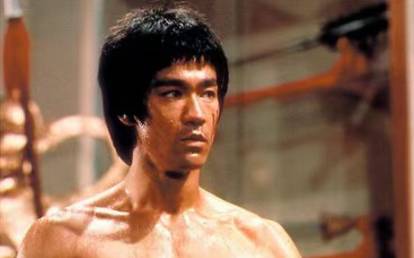Bruce Lee: The Legend of Martial Arts
Bruce Lee, born Lee Jun-fan on November 27, 1940, in San Francisco, California, is widely regarded as one of the most influential martial artists of all time. His innovative techniques, philosophy, and charisma not only revolutionized martial arts but also changed the perception of Asian culture in Western cinema.
Early Life and Background
Bruce Lee was born to a Cantonese opera singer, and his early life was marked by continuous exposure to show business. At the age of 6, he began training in martial arts, specifically Wing Chun, under the guidance of renowned master Yip Man in Hong Kong. His competitive spirit and drive led him to participate in numerous street fights, honing his skills and gaining a reputation as a formidable fighter.
In 1959, Lee moved to the United States to pursue higher education and opened his martial arts school, where he taught his unique blend of martial arts. His teaching emphasized adaptability and practicality over rigid traditional forms.
Martial Arts Philosophy
Lee’s philosophy of martial arts extended beyond mere physical techniques. He introduced the concept of "Jeet Kune Do" (the Way of the Intercepting Fist), a hybrid martial arts philosophy that encouraged practitioners to absorb what was useful, reject what was useless, and add what is specifically their own. This approach emphasized fluidity, speed, and efficient movement, breaking away from traditional martial arts' constraints.
Film Career and Cultural Impact
In the early 1970s, Lee transitioned into acting, starring in a series of groundbreaking films that showcased his martial arts skills. His first major role in "The Green Hornet" (1966) showcased Lee's charisma and fighting prowess, earning him a significant following.
Lee’s films, such as "Fists of Fury" (1971), "The Way of the Dragon" (1972), and "Enter the Dragon" (1973), not only achieved box office success but also played a crucial role in introducing martial arts to global audiences. "Enter the Dragon," released posthumously in 1973, is often credited as the film that ignited the martial arts craze in the West.
Leaping beyond the realm of action films, Lee became a cultural icon, challenging stereotypes of Asian men in film and creating a more positive representation of Asian culture.
Legacy and Influence
Bruce Lee’s untimely death on July 20, 1973, at the age of 32, shocked millions. However, his legacy continues to thrive. He remains a symbol of perseverance, innovation, and passion. His teachings in martial arts have influenced countless practitioners around the globe, as well as modern martial arts styles and philosophies.
In addition to martial arts, Lee's impact extended into fitness, philosophy, and cinema. His work has inspired generations of martial artists, filmmakers, and actors, including figures like Jackie Chan, Jet Li, and many others who credit Lee as a major influence.
Conclusion
Bruce Lee's life, work, and philosophy




No comments yet
Be the first to share your thoughts!